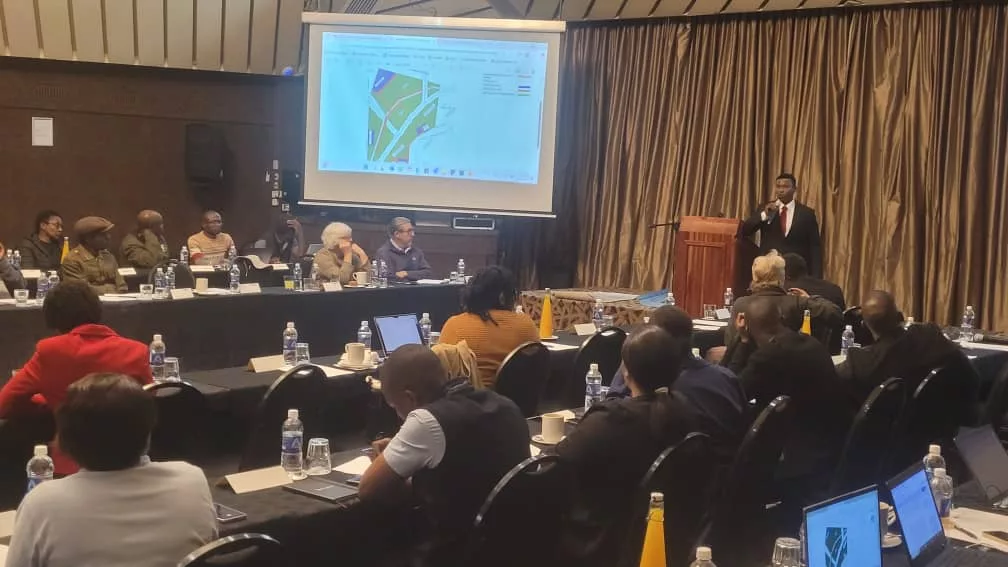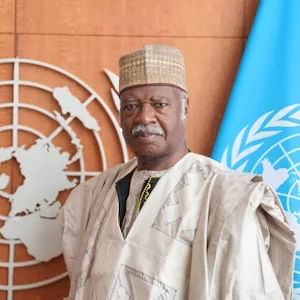|
Getting your Trinity Audio player ready...
|
The government says it is committed to fostering a more inclusive and competitive economic landscape and urgent need to integrate the informal sector into the mainstream economy.
Public Service Labour and Social Welfare Deputy Minister, Mercy Dinha told delegates at the Business Environment Dialogue organised by the Tripartite Negotiating Forum (TNF) economic cluster, held in Harare on Tuesday.
“The business environment is the most important aspect of any enterprise,” she said.
“It is shaped by various forces, including suppliers, competitors, Government policies, and economic conditions. A holistic approach is crucial in addressing challenges and identifying sustainable solutions.”
The dialogue session, attended by various stakeholders from key sectors, provided a platform to introspect on economic challenges and propose policy recommendations.
Dinha also announced that Government recently put in place measures to formalize the informal sector.
“Cabinet recently pronounced several measures to align the formal and informal sectors,” she said.
“These include the mandatory use of electronic money for all businesses and the introduction of a compulsory tax payment system to enhance compliance with tax laws.”
The Government is also working towards reducing duplication of work among regulatory agencies. This, according to officials, will cut turnaround times and lower costs of doing business.
The African Continental Free Trade Area (AfCFTA) was also a key discussion point at the meeting, with speakers highlighting its potential to boost regional trade and economic resilience.
Said Deputy Minister Dinha: “The full implementation of AfCFTA will help African countries increase their resilience to economic shocks and drive the deep reforms necessary for long-term growth.”
Stakeholders at the dialogue welcomed the Government’s efforts but also urged more engagement with small business owners to ensure that policies are practical and inclusive.
The TNF, established under the TNF Act of 2019, plays a crucial role in addressing socio-economic issues through dialogue between Government, business, and labour representatives.
As Zimbabwe works towards a more competitive economy, the focus remains on creating an environment where businesses—both formal and informal—can thrive while contributing to national development.
Dr. Paul Tungwarara, President Emmerson Mnangagwa’s Investment Advisor, said there are several benefits of formalization of the economy.
“Formalization brings more businesses and individuals into the tax net, increasing government revenue because formal businesses are more likely to comply with tax laws, reducing tax evasion. Such businesses can access formal credit channels, enabling them to invest and grow. Formalization reduces the reliance on informal, often expensive, financial services,” Dr. Tungwarara said.
Renowned economist, Dr. Prosper Chitambara weighed in saying formal businesses are more likely to adopt efficient practices, thereby increasing productivity. He added that formalization enables the government to allocate resources more effectively, as they have a clearer understanding of the economy.
“Formal businesses are more likely to adhere to labor laws, improving working conditions. Formal workers are more likely to have access to social protection programs, such as pension schemes and healthcare. It also reduces the risks associated with tax evasion, such as fines and penalties. In other words, formal businesses are better equipped to withstand economic shocks, reducing the risk of business failure.
“Formalization also promotes transparency and accountability, reducing corruption and improving governance. Formal businesses provide more accurate data, enabling the government to make informed policy decisions,” Dr. Chitambara said.






